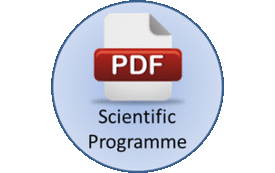
Margit Weltschev
The Federal Institute for Materials Research and Testing, Germany
Title: Compatibility of sealing materials with biofuels and biodiesel heating oil blends at different temperatures
Biography
Biography: Margit Weltschev
Abstract
The objective of this research was to determine the resistance of frequently used sealing materials such as FKM (fluorocarbon rubber), FVMQ (methyl-fluoro-silicone rubber), VMQ (methyl-vinyl-silicone rubber), EPDM (ethylene-propylene-diene rubber), CR (chloroprene rubber), CSM (chlorosulfonated polyethylene), IIR (butyl rubber), PA (polyamides), NBR (acrylonitrile-butadiene rubber) and PUR (polyester urethane rubber) in fuels and heating oil with admixtures of biogenic sources such as E10 (fuel with 10% ethanol), E85 (fuel with 85% ethanol), non-aged and aged biodiesel, diesel fuel with 5% biodiesel, non-aged and aged B10 (heating oil with 10% biodiesel) at 20°C, 40°C and 70°C. Mass, tensile strength and breaking elongation of the test specimens were determined before and after the exposure for 84 days in the fuels. The visual examination of some elastomer test specimens clearly showed the great volume increase until a break or partial dissolution. Shore hardness A and D (for PA) were determined before and after exposure of the test specimens in the biofuels for 42 days. There is not determined a threshold for the reduction in tensile properties and Shore hardness in the international standards. Therefore a threshold of 15% was determined for the evaluation of the compatibility. In summary, it can be therefore stated that the chemical resistance of the fluoropolymers FKM and FVMQ in fuels and biofuels is the best one.

